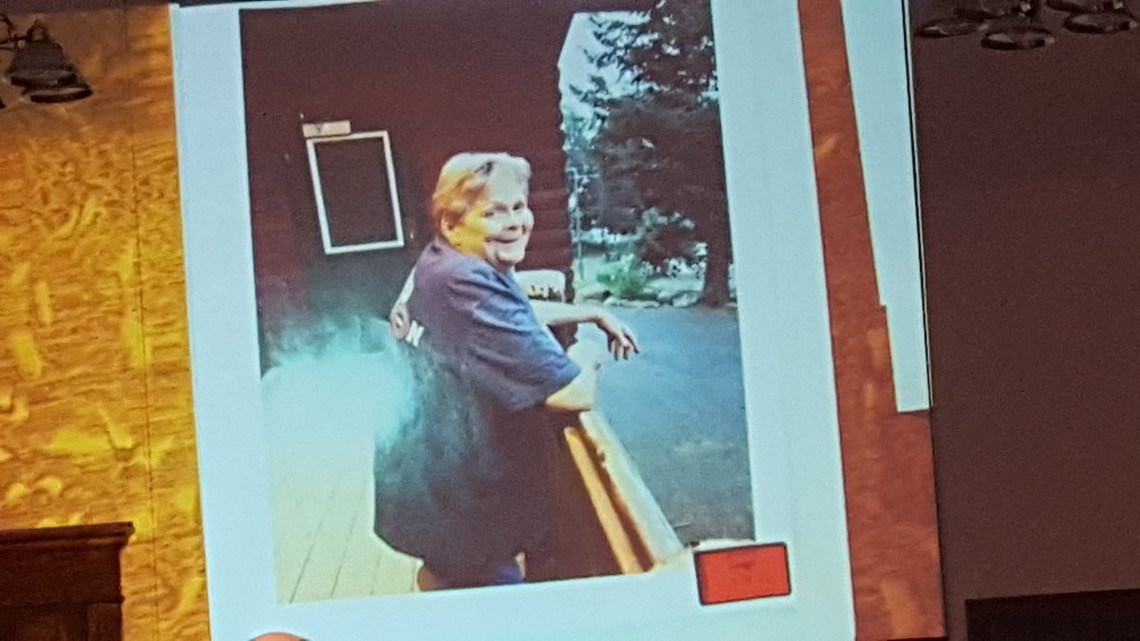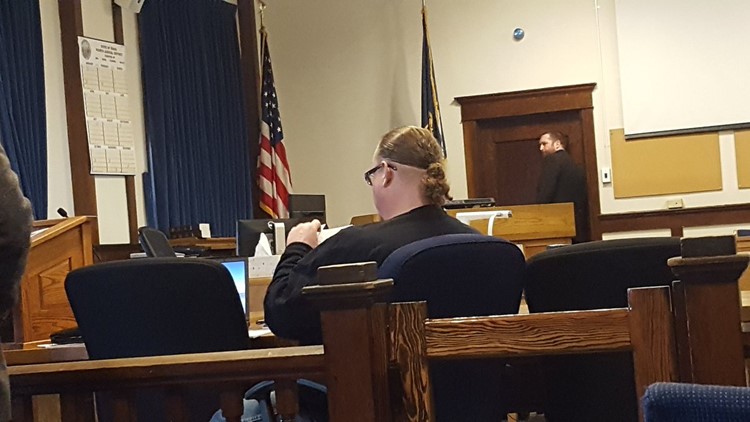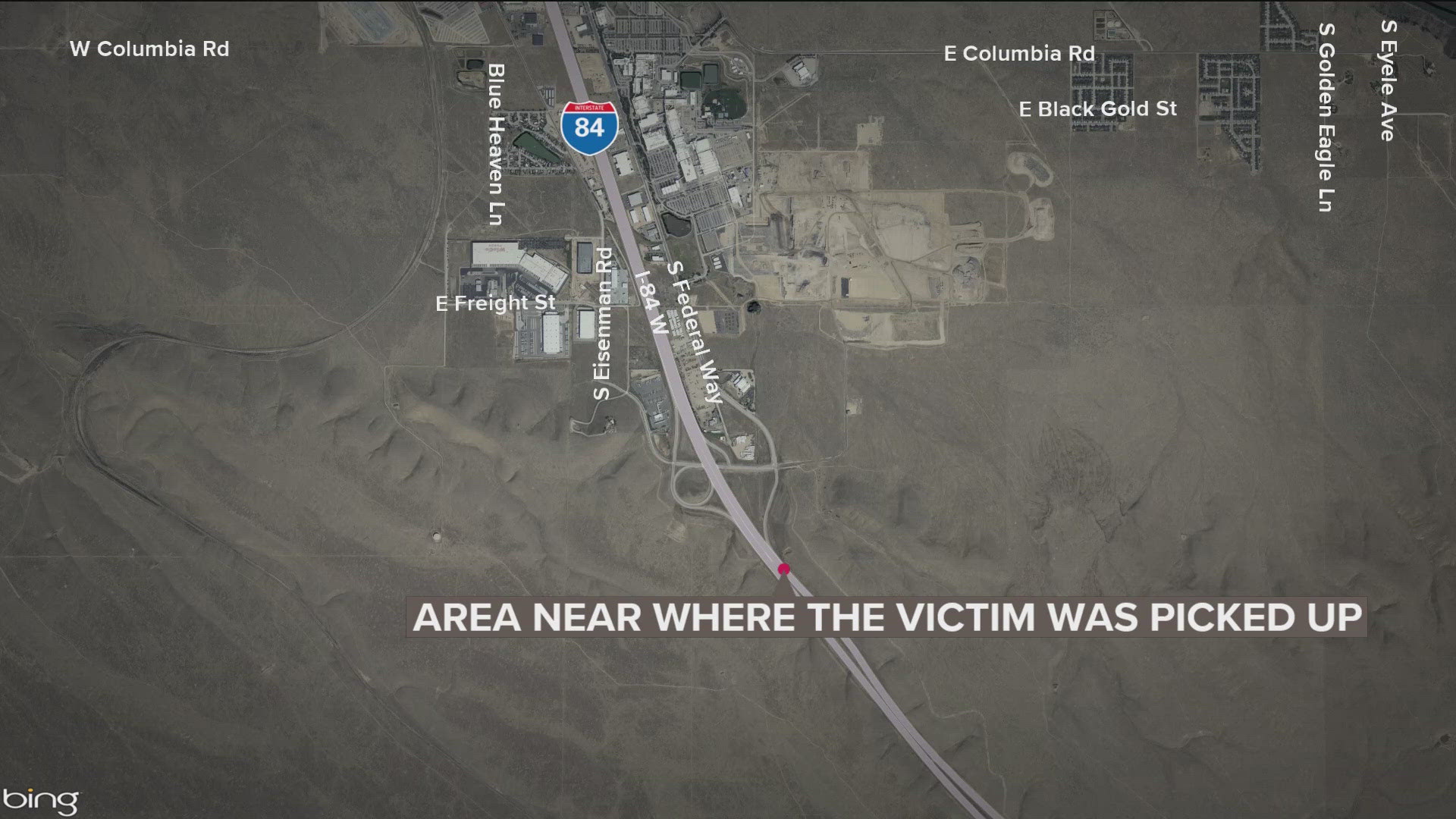MOUNTAIN HOME, Idaho — The trial of a Mountain Home man accused of brutally murdering his 71-year-old landlady began Wednesday.
In an opening statement made Wednesday morning after the jury was seated, prosecutors vowed to present a flood of DNA and other evidence implicating defendant Scott Riggs in the death of Paula Ferbrache.
Riggs has pleaded not guilty to a charge of first-degree murder in the case. He told investigators that he accepted a ride from the victim the day she disappeared, but denied harming her.
Ferbrache went missing after leaving the Mountain Home Walmart where she worked on Aug. 25, 2017. Her body, stabbed eight times, was found the next day in the trunk of her own Buick.
LIVE BLOG: Trial underway in Mountain Home murder case
Ferbrache's husband, John Ferbrache, testified that he called his wife at about 3:30 p.m. as she left an after-work eye appointment at Walmart.
Paula Ferbrache told him that she was giving a ride to someone who had broken down. When he asked who the passenger was, Paula Ferbrache told him it was "Scott," John Ferbrache testified.
"She was always helping somebody," he said.
John Ferbrache told his wife he loved her, and got off the phone. It was the last time he would ever speak to her.
Prosecutor Daniel Page said security cameras captured video of Riggs driving into the Walmart parking lot the day the victim died. In the footage, the suspect parks on one side of the lot, then walks across to the other side to sit on a bench near Ferbrache's car, Page said.
Riggs sat waiting until some time after Ferbrache typically got off of work, then left, the prosecutor said.
Sometime after that, according to prosecutors, came the call between Ferbrache and her husband.


When John Ferbrache got home from work, he testified, his wife was not there. He tried to call "a couple of times," he recalled, but she never picked up. Family members he called said they hadn't seen her either.
"I was pretty much up all night with the sheriff, looking for her," he said.
The next morning, he drove the roads around Elmore County, wondering if his wife had crashed her car somewhere. Friends and family members pitched in to help search, including Scott Ashby and Raymond Greg Knudson, the victim's brother.
Ashby and Knudson both testified that they drove together up to a field where the Ferbraches kept their horses to look for Paula Ferbrache. They drove through the open gate and along a road until they spotted the silver Buick stopped in a small ravine or valley.
The men called the sheriff's office, who dispatched Deputy Michael Gelalia to check it out.
Gelalia told jurors he walked up to the car and noticed what "appeared to be blood pooling or smearing on the ground" inside the car, and more apparent red stains on the Buick's back bumper.
When he opened the trunk, he found a body inside he immediately recognized as the missing woman.
"I checked to see if there was any pulse," he testified. "There was no pulse, obviously no respiration either."
The news reached John Ferbrache around noon.
He testified investigators did not immediately tell him how his wife had died, and he never considered she might have been murdered.
"We had horses out there where she was found. I thought maybe one of the horses had kicked her," he said. "I didn't know. I had no idea."
The victim's cell phone was not with her body, prosecutors say. Investigators were able to ping it and triangulate its location, leading them to a second crime scene.
At that site, dumped out in the desert, investigators found the cell phone, along with a bloody knife, a T-shirt, and an improvised ball gag and blindfold, Page said.
The found items directly tie Riggs to the murder, the prosecutor argued.
"That knife was sold to Mr. Riggs as part of a set of two knives," he told the jury. "The evidence will show the second knife in the set was found in Mr. Riggs' home after the murder."
In addition, he said, both the gag and the blindfold were made from material police found at Riggs' house, and the shirt was a size 4XL - the same size as other shirts in the suspect's home, he said.
Page said Riggs' fingerprint was found on the passenger door of Ferbrache's Buick, and his palmprint was on the car's trunk. A spot of blood discovered inside Riggs' pickup truck was a DNA match to the victim as well, he said.
But Riggs' defense attorney, Terry Ratliff, said the prosecution's evidence does not add up to what they were claiming.
He suggested that investigators had bungled the case, telling jurors that Riggs had told detectives that he was at the Walmart to buy drugs, not lie in wait for his landlady. Police never followed up on his assertion, Ratliff said.
The attorney also argued that the evidence would show the murder could not have been committed by just one person, claiming police made a "snap conclusion" that Riggs must be the killer.
Ratliff also pointed out that when tested, the homemade gag found in the desert did not have the victim's DNA on it.
A motive in Ferbrache's murder was not discussed Wednesday, although the victim's husband indicated that the relationship between the Ferbraches and their tenant had begun to sour.
Riggs and his family were about two months behind on rent, John Ferbrache testified, and Paula felt the tenants were letting the home fall into disrepair.
"The lawn was not being taken care of, the house had junk all around it," he said. "She was not happy. She was upset they hadn't been taken care of things."
John Ferbrache promised his wife he would take care of it. The couple decided not to renew the Riggs' lease when it ran out in October, but did not make any formal moves to evict them, he said.
Riggs was arrested and charged in the murder Sept. 1, 2017, one week after Ferbrache's body was found. If convicted, he will face up to life in prison.
The trial is set to resume Feb. 20.



